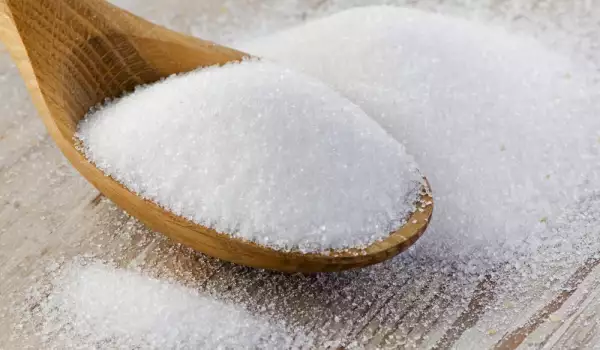Dextrose is a monosaccharide or simple sugar, which is quickly absorbed by the body. It's also called D-glucose.
D-glucose is biologically active. It is incredibly common in nature and is found in both the plant and animal kingdoms.
It's found in grape juice and other sweet fruits. Dextrose is a white substance with a crystal-like structure, is sweet and water soluble. When heated it gradually melts.
It is also found in the roots, flowers, leaves and seeds of plants. In plants it often ends up mixed with the fruit sugar fructose and cane sugar. The substance can also be found in the blood and lymph of animals, as well as in human urine.
It may also be offered as a type of food supplement. Usually this supplement is taken by people who work out actively, train in the gym or by bodybuilders.
Production of Dextrose
Dextrose can be obtained by hydrolysis of many polysaccharides and glycosides (cellulose, glycogen, resins and others). Technologically, dextrose is obtained through hydrolysis of starch under the effects of mineral acids.
Sources of starch include many cultures, including potatoes, corn, rice and wheat. In lab conditions, it is created in a specific way using sugar cane.
Sources of Dextrose
As stated, dextrose is found all over, especially in fruits. You can find it in grapes, apricots, strawberries, dried prunes and figs. Mushrooms, spinach, onions and others also contain it. Buckwheat, einkorn and honey too are sources of dextrose.
Choosing and Storing Dextrose
Dextrose can be bought in specialized stores that offer a wide range of food supplements, either in powdered or tablet form at varying prices.
When buying dextrose, always check to see whether the substance has not passed its expiration date and whether the bottle is well sealed.
Store dextrose products in a dry, cool area, away from sunlight. Drawers are perfect, to keep them out of reach of children. Never use the substance if it is past its expiration date.
Daily Intake of Dextrose
According to the experts, the recommended daily dose of dextrose comes out to about 40 g or 4 tablespoons. If the person using the substance works out and wishes to increase their body mass, they can take 4/5 tsp (4 g) of powdered dextrose per 2 lb (1 kg) of body weight.
If instead they would like to decrease their body mass, they need a lower intake of dextrose. In any case, these values can vary, so it's best to consult a competent nutritionist or fitness instructor before you take supplements. Individuals suffering from diabetes need to avoid taking these types of supplements.
Benefits of Dextrose
Dextrose is an important source of energy for the body. It is one of the many substances responsible for balanced body function. Normal amounts of it help protect against a range of diseases, as well as maintaining body tone.
If the levels of dextrose in the human body begin to drop drastically due to malnutrition or unbalanced diet, this may cause slowed thinking and sluggish reactions. This in turn can lead to impaired work ability.

And this can be disastrous if we are to complete a given task quickly and when under the influence of stress. This is why dextrose needs to be taken in mostly through the regular consumption of different kinds of food products.
Additional dextrose intake is generally done by people who exercise actively. In combination with other substances it leads to increase in body weight.
It is common practice to mix it with creatine, undoubtedly increasing power and energy.
On its own, creatine is one of the most popular and effective supplements that athletes use to get an influx of energy.
Dangers of Dextrose
Even though it is important for the proper development of the body and for physical activity, dextrose should not be taken in excessively large amounts since it can cause health problems.
There is a risk of the development of diabetes if there is a sharp rise in dextrose use. Further risks include memory problems, increased blood pressure and Alzheimer's disease.
Improper use of this monosaccharide can cause other serious conditions, such as stroke. Before going on any type of diet, be sure to consult a competent expert.










